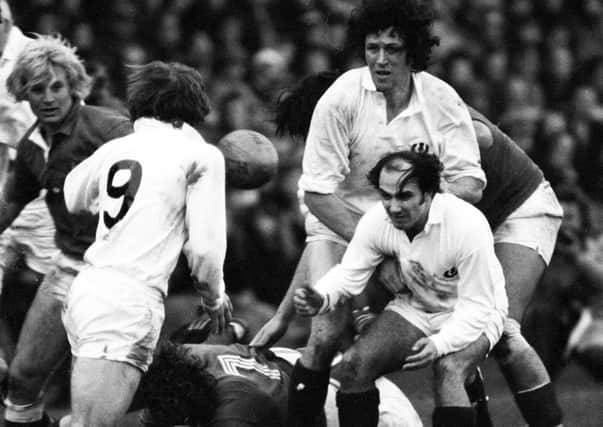Obituary: George Mackie, farmer and former Scotland rugby international


The death after a lengthy battle against pancreatic cancer of George Mackie, just over two weeks before his 71st birthday, brings to a close a life well-lived in various fields.
George was farming ‘royalty’ in the fertile lands of the mearns – a member of the influential Mackie dynasty.
Advertisement
Hide AdAdvertisement
Hide AdHis father Baron John-Mackie was a Labour MP, Parliamentary Secretary for the Ministry of Agriculture, Fisheries and Food, later a member of the House of Lords and chairman of the Forestry Commission. One of his uncles was Sir Maitland Mackie while another uncle, George, also went to the House of Lords as Liberal peer Baron Mackie of Benshie.
With that background, George had a life-long interest in politics –he was a socialist and internationalist. His interest in politics was seen during his time studying at the North of Scotland College of Agriculture in Aberdeen, where he was involved in the protests against the South African rugby tour of 1969.
At that time, he was only starting to dabble in rugby with an Aberdeen club called ‘The Hairies’, a team which, with his unruly mop of black hair, he was well-qualified to represent.
Back then he was starting to make a name for himself on the Highland Games circuit, as a high jumper and also in the heavy events, where he was encouraged to compete by top-line competitors such as Charlie Allen and Bill Anderson, before the rugby bug bit him properly and he went down a different sporting path.
He was playing at a low level with Montrose when he was spotted by future Scotland coach Nairn MacEwan, who persuaded George to throw in his lot with Highland, travelling to Inverness to train and play. Theirs was a close relationship and, during MacEwan’s difficult final years as a near-recluse, George Mackie was one of the few people who could reach him.
Highland were on the rise at the time. MacEwan had returned from Gala to lead the side and encourage young talent such as Mackie to improve themselves. Mackie progressed via the North and Midlands team to win his first Scotland B cap, against France in 1974 and at the end of that 1974-75 season he was chosen to travel to New Zealand with the Scotland squad, where he played on three of the seven games on the tour.
He was due to make his Scotland debut in what is now known as ‘The Water Polo Test’, the final game of the tour, but a knee injury sustained against Bay of Plenty on the Tuesday before the game, denied him his cap.
That honour was delayed a mere five and a bit months, however, before he did make his debut, in a 10-3 win over Australia, at Murrayfield. George retained his place for the opening Five Nations game, a 6-13 loss to France at Murrayfield, then he won his third cap in a 6-28 loss to Wales in Cardiff. He then dropped out of the national side, before being brought back for a fourth and final cap in a 16-19 loss to France, at Murrayfield, in 1978.
Advertisement
Hide AdAdvertisement
Hide AdAfter rugby, he went back to farming, moving down to Essex to take over the running of the farm his father had bought while MP for Enfield. Under George’s management, the farm enterprise had been expanded – he ran a large livery yard and had both an indoor and outdoor arena and a cross-country course. He also operated a successful business selling logs and, in season, Christmas trees.
He was very much a family man, enjoying music, films and family life, encouraging sons Robert and Hector from the sidelines. Robert followed his father in playing rugby, while Hector chose football, and was good enough to win a place at the Tottenham Hotspur Academy.
Mackie battled his cancer ferociously and, just a few weeks before his death, he made a last visit to Inverness, where he was impressed by Highland’s facilities and the ease with which they had adapted to their return to the upper reaches of the leagues.
He is survived by wife Catherine, herself a well-known journalist, by Robert and Hector and daughter-in-law Laura. There will be a memorial service once lockdown restrictions are eased..
George Mackie is not the only Highland player to have played rugby for Scotland – however, he is the only one to have won all his caps, while playing for the club – a unique honour.
MATT VALLANCE